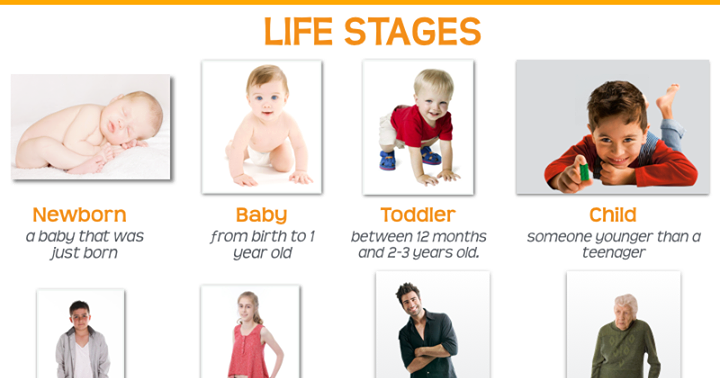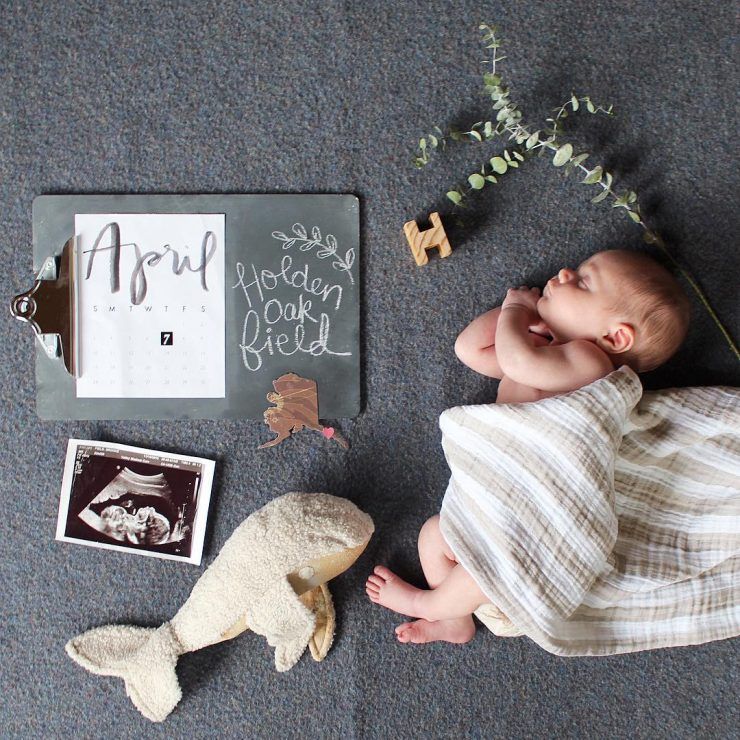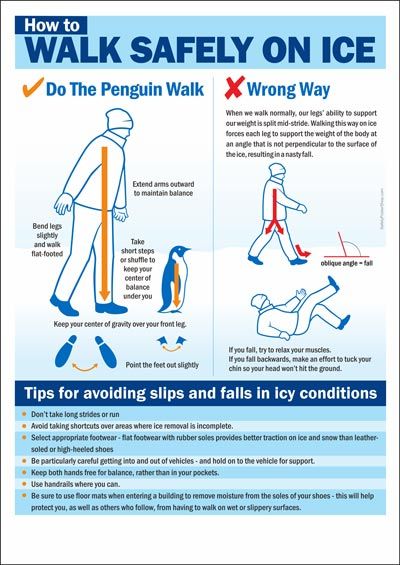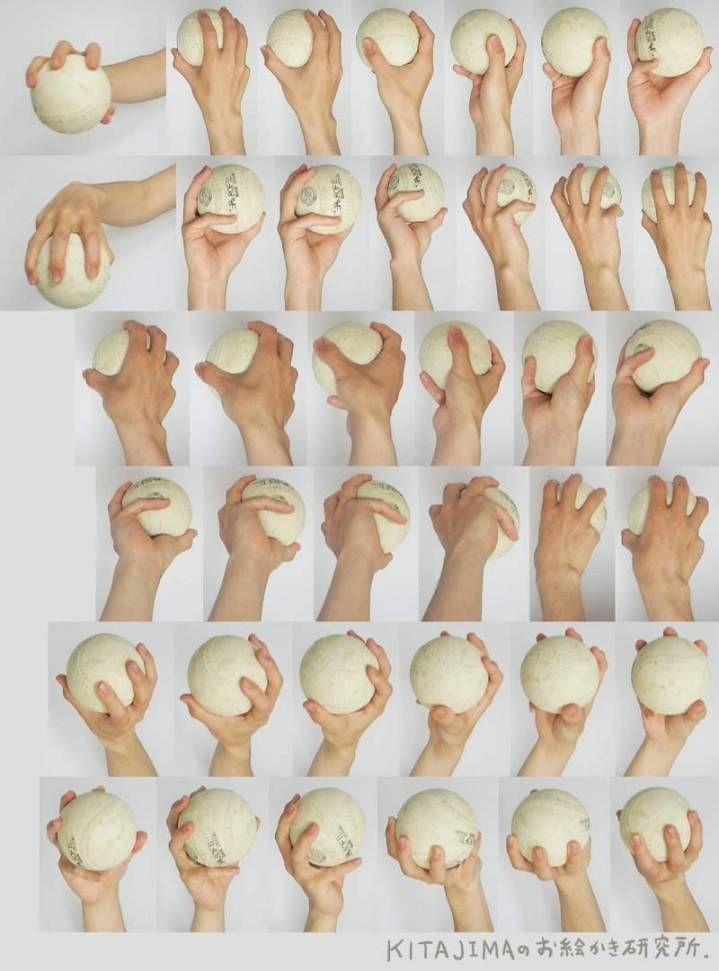Life with newborn
A day in the life of a newborn
Newborn babies seem to mostly sleep, eat, cry and poo. But as you and your baby get to know each other and bond in your early days together, your day will also involve cuddling and playtime. All babies are different — their eating and sleeping patterns often change, and it may take some time for them to settle into a routine.
You may prefer that your day-to-day activities follow what your newborn does. Alternatively, you may like to start to establish a very simple routine. Either way, your baby and you will begin to settle into a daily pattern of sleeping, feeding and playing.
Sleeping
Newborns spend most of their time sleeping between feeds. Each sleep period is around 2 to 3 hours. However, your baby may start to stir after 40 minutes and may need your help to settle back into sleep again. In a 24-hour period, they may be asleep for 16 hours.
Your baby cannot tell the difference between sleeping during the day and night, and will probably wake for feeds 2 to 3 times during the night. Once your baby is a month old, they may start sleeping for longer periods at night, and from 3 to 6 months they may sleep for 4 to 5 hours at a time.
Because a newborn's sleep patterns change regularly, it is a good idea in the first few months to take it slowly and remain flexible.
Feeding
Whether you choose to breastfeed or bottle feed, your baby will need about 6 to 8 feeds in a 24-hour period, for a total of around 2 to 5 hours a day. Breast milk is easily digested, so if you are breastfeeding, your baby may even feed up to 12 times a day.
At certain times, your baby may feed very frequently, which is called cluster feeding. After the cluster feed, they might have a longer sleep.
If you want to calculate the time between feeds, you should work out the time from the beginning of the last feed, not the end.
As well as providing your baby with the important nutrition that they need to grow, feeding your newborn is a great way to have some cuddle time.
Listen to Dianne Zalitis, midwife, talk about what to expect when you bring your baby home on the Babyology podcast.
Cuddling and playing
Making time for cuddling and play time with your baby as part of your daily activities is important for their growth and development. The key is to interact with your newborn, rather than giving them games and toys. Ideas for playing include:
- making eye contact, smiling and talking
- singing nursery rhymes
- taking your baby for a walk
- reading or telling them a story
- making faces
- blowing raspberries
Other play ideas include:
- giving your baby different things to look at and feel while talking to them
- giving your baby supervised tummy time each day
- making sounds
- giving your baby a massage
For some babies, play time might simply involve cuddling or having a quiet stretch and kick on a blanket. Some may want only 10 minutes play at one time, while others may prefer longer. It is best to pay attention to your baby's behaviour; if they seem upset or unsettled, they may be frightened, tired or overwhelmed. If so, try a quieter activity later on. Alternatively, you may notice from their behaviour that they are getting tired and need to sleep.
Some may want only 10 minutes play at one time, while others may prefer longer. It is best to pay attention to your baby's behaviour; if they seem upset or unsettled, they may be frightened, tired or overwhelmed. If so, try a quieter activity later on. Alternatively, you may notice from their behaviour that they are getting tired and need to sleep.
Crying
Sometimes it seems as if your baby is always crying! This is normal and is a way for your newborn to communicate with you.
About 1 in 10 babies cry more than 3 hours a day. You may find that your newborn cries more in the afternoon or early evening than at other times.
When your baby is crying, check if they are hungry, tired or uncomfortable. They may need feeding, settling to sleep, a clean nappy, or your baby could be too hot or cold. They could be frightened, needing a cuddle, excited or overtired.
As you get to know your baby better, you will start to recognise different types of cries and what they mean. Responding to your baby's crying is an important part of trust and bonding.
Responding to your baby's crying is an important part of trust and bonding.
Other activities
Part of your daily routine will also involve regularly changing nappies and washing your baby.
What routines can I start with my newborn?
It helps to remain flexible with newborns. However, you might choose to start doing simple things with your baby in a similar order when it comes to sleeping, feeding and playing:
- when your baby wakes from a sleep, offer them a feed
- in the middle of, or at the end of the feed, change your baby's nappy
- have cuddle, talk and play time
- settle your baby down to sleep
At night you may prefer to skip play time and simply try to settle them back to sleep.
You should do what you feel is best for you and your baby, but seek advice if you are not sure. Call Pregnancy, Birth and Baby on 1800 882 436 to talk to a maternal child health nurse.
Learn more here about the development and quality assurance of healthdirect content.
Newborn Life: Expectation vs Reality
Wondering what newborn life is REALLY like? Learn which surprising expectations about parenthood and caring for a baby are far from reality.
Like any first-time pregnant mom, I daydreamed about newborn life.
Now, I wasn’t naïve—I knew there would be days when I’d be sleep deprived, and I expected to change a lot of wet diapers. (Although, hearing it might be up to 13 diapers a day did make me raise an eyebrow.)
But I pictured myself waking up in the middle of the night with a knowing smile and patiently cooing at my little darling. I’d stroke his plump cheeks and sing songs during tummy time. Sure, caring for an infant would involve sleepless nights, but nothing I couldn’t handle, right?
Turns out, I don’t think I smiled once when I had to get up in the middle of the night. Dragging myself out of bed to nurse or do yet another diaper change wasn’t the adorable scenario I’d imagined.
Newborn life is an initiation to parenthood. Just when you thought all the struggles of pregnancy were finally over, you face a whole new set of challenges. Tending to a newborn baby’s needs is much more difficult than dealing with pregnancy cravings or pelvic bone pain.
It’s no wonder moms—especially first-time moms—feel overwhelmed adjusting to motherhood, even if we’ve prepared for a newborn as much as we could.
Table of Contents
Newborn life: expectation vs reality
You see, I “knew” what to expect. I read all the baby books I could get my hands on and eagerly took pregnancy, childbirth, and parenting classes (where I learned about those 13 daily diapers!). I understood what was coming my way and wasn’t oblivious to the challenges I’d face.
Still, even for someone so prepared, the reality often slapped any expectation I had in the face. Sleep deprived, sore, and strained—those first few weeks were difficult. Looking back, I can see how my expectations weren’t as realistic as I’d believed.
So, let’s compare! Take a look at a few of my expectations for newborn life, versus how they stacked up against reality. I hope it gives you an idea of what to expect and temper any pressure or guilt you may have when those days get hard.
As parents said about the article:
“Honest to god I have read so many blogs and yours is the only one that feels realistic. THANK YOU for writing this article as we are expecting a newborn in under a month. Your article really has helped me to be realistic. Thank you again!” -Nav
“Thank you for this wonderful write-up. After going through severe depression and incessant crying (I just break down in tears when someone asks how I’m doing) this blog of yours made me laugh out loud so hard that my husband though I had lost it completely!” -Sarah
1. You’ll patch in your eight hours of sleep
During the last few weeks of my pregnancy, I’d wake up about five times a night to pee. I remember thinking, Oh, this must be nature’s way of preparing me for waking up with the baby!
Reality: Yes, you wake up many times in the night with your baby, but the reality is, it’s way more than five times a night. Here’s the kicker: when you wake up with her in the middle of the night, you can’t simply fall back to sleep like you do after a trip to the bathroom.
Here’s the kicker: when you wake up with her in the middle of the night, you can’t simply fall back to sleep like you do after a trip to the bathroom.
Nope! You’re awake feeding, rocking, burping, and changing. She might decide she’s got plenty of energy when she wakes up. And once you soothe her to sleep in the crib or bassinet, getting yourself back to sleep is surprisingly difficult, despite the sleep deprivation.
Even though some days I was able to patch together eight hours of sleep by taking naps and sleeping whenever my baby slept, I was still exhausted. I realized it’s because I needed a long stretch of uninterrupted deep sleep to feel refreshed.
Free printable: Struggling with getting her to sleep? The problem might be the time she’s awake. Join my newsletter and get One Mistake You’re Making with Your Baby’s Awake Time. You’ll learn exactly how to use her awake time to help her take better naps. Grab it below—at no cost to you:
2.
 You’ll take leisurely strolls to run errands
You’ll take leisurely strolls to run errandsEveryone—everyone!—I talked to said babies fall asleep in strollers. They told me all I needed to do to soothe my baby to sleep was tuck him into the stroller and run a few errands. They promised he’d conk out right away, while I’d even squeeze in some exercise.
Reality: Unfortunately, my baby didn’t get the memo about the sleep-inducing power of stroller rides. Instead, he couldn’t stand his stroller! He’d stay wide awake, shrieking the entire time.
I was so nervous about what other people thought when I ran errands and tried to get some fresh air. I hated seeing pitying looks and knowing smiles, while I tried to hide my stress.
Instead, I’d try to pull off a confident, “I got this” look, like I wasn’t fazed at all by his shrieking. (When really, I wanted to hide in the stroller and cry along with him.)
Stroller sleeping was so rare for me that I remember the one time he did sleep in one. I happened to push him through a neighborhood with cobbled streets, and he loved the vibration and was exactly what he needed to fall asleep.
I happened to push him through a neighborhood with cobbled streets, and he loved the vibration and was exactly what he needed to fall asleep.
Of course, it only lasted for 20 minutes and never happened again. I even tried revisiting the same neighborhood, but his stroller slumber turned out to be a one-time fluke.
3. Breastfeeding will come easily
I told myself breastfeeding will be easy enough. I figured, after all, women have been feeding their babies since the beginning of time. It should be easy and natural—our bodies are designed for breastfeeding, right?
Reality: Breastfeeding turned out to be a battle of wills: mine against my body. I had to power through because it took a long time to get the hang of it.
Turns out, there are right and wrong ways to latch a hungry baby. Continue a bad latch and you end up with blisters, aching nipples, or even mastitis. You’ll be one miserable mama (and baby).
Even with a lactation consultant at the hospital who showed me the right latch, I still struggled with the constant feedings. Whenever I was ready to throw in the towel, I’d have to look up the benefits of breast milk again to strengthen my resolve.
Whenever I was ready to throw in the towel, I’d have to look up the benefits of breast milk again to strengthen my resolve.
I even resented my baby for wanting to nurse so often. I’d dart dagger eyes at anyone who dared suggest “he must be hungry” every time he fussed (although in hindsight, they were probably right). At any sign of hunger, I dreaded yet another feeding session.
I felt so much pressure knowing I was the only one who could do anything to nourish him.
Read 12 breastfeeding secrets every mom should know.
4. If you have family and friends, you’ll always have help
I’m lucky because both sides of our families live near us, here in Los Angeles. We had plenty of food, admiring visitors, and volunteers to hold our baby while I dashed away for a quick shower. It was wonderful.
But, as helpful as other people can be when you bring your baby home, sometimes it’s not enough.
Reality: It’s the least convenient times to call on another person that you actually need the most help. I couldn’t imagine calling my family or friends at 3am, begging them, “Could you come by? I’m struggling with putting the baby to sleep.”
I couldn’t imagine calling my family or friends at 3am, begging them, “Could you come by? I’m struggling with putting the baby to sleep.”
As grateful as I was for everyone who did come by to visit and help, I didn’t realize how isolating it can still be to care for a newborn baby. As parents, it’s all up to you. You’re who and what the baby needs most in those first few weeks.
But thank goodness for my mom, though. She slept over for those first few weeks, and it was so helpful! Not only did she actually wake up for many of those 3am calls, she also had our routine down pat. She understood my style, so I didn’t have to re-explain how to bathe or burp the baby during each visit.
As helpful as visitors might be, try to get someone to come live with you for a few days or weeks—that’s the kind of visit you’ll find most helpful.
Check out these 12 rules when visiting a new mom.
5. You can be productive with a baby
Before I gave birth, I thought I’d do some freelance work to bring in extra income during maternity leave. I thought I could fit work in when my baby was sleeping and not doing much.
I thought I could fit work in when my baby was sleeping and not doing much.
Reality: I was so wrong. Clearly, I knew nothing about what maternity leave looks like. Even though we spend time sitting, holding, nursing, and caring for a baby, that time isn’t “free.” He’s 100% dependent on you for every waking moment and doesn’t leave time for much else.
If you want to take him somewhere, plan on spending so much time packing a diaper bag that, once you’re done, you’d rather not leave. Your activities are planned around uncertain and ever-changing sleeping and eating schedules.
When you do have a routine in place, you’re often so committed to it, you wouldn’t dream of messing it up to fit anything else in.
Any chance for a break happens in sporadic five-minute chunks between cleaning poop and packing changes of clothes. It’s not exactly ideal for focused work that requires concentration and accuracy. With sleep deprivation, you can barely complete basic tasks, let alone productive work.
Get tips on how to manage being alone with the baby.
6. You’ll love having a baby all the time
Right before I gave birth, a coworker who just had a baby of her own advised, “Don’t be surprised if you find yourself crying. Sometimes I’d hold my baby and cry right along with her.”
My first impression? I thought she must have had some issues or that she had postpartum depression. I thought to myself, That won’t be me. I’m not a “sad” person.
Reality: Later, I realized while I was holding my baby and crying along with him, that she was spot-on right.
Throughout all those months of pregnancy, I read many books, took classes, and talked to plenty of people. But I have to admit, that one-minute conversation with my coworker was the only one that offered a glimpse of truth into the hardships of newborn life.
Bombarded with congratulations and smiles, baby toys, and car seat logistics, I felt excited and hopeful, ready to bond with my baby. Turns out, I overlooked that having a newborn can also be hard, and the ensuing sadness and frustration that can happen.
It seems like anytime someone mentions the hardships or struggles of newborn life, we assume (like I did) that it won’t apply to our newborn experience. We think we should only offer congratulations, joy and positivity to expecting moms, when we should offer some honesty as well.
Read 6 reasons motherhood is hard.
Conclusion
I felt prepared for our new baby. I’d done my research and thought I knew what was to come. I’ll admit it now—I was surprised at just how much reality differed from my expectations. And I’ve learned that I’m not alone with feeling shocked at the realization.
We imagine we’ll have plenty of time to run errands, pick up extra work, and catch up on our sleep. We believe we’ll never feel isolated or helpless because we’re surrounded by helpful family and friends.
And we think breastfeeding and infant care will be easy, imagining that we’ll love every minute with our babies.
But even those who long for a baby and look forward to having a little bundle of joy feel overwhelmed in the first months of motherhood. It’s natural and normal to struggle. Reality can look different from the expectations we set going into parenthood.
Hopefully, in sharing my story, I’ve helped you see that you’re not alone and you shouldn’t feel guilty for struggling with motherhood. That you feel reassured that the newborn stage does get easier.
Maybe you’ll be more prepared with realistic optimism, an open heart, and the expectation that you’ll be changing 13—yup, 13!—diapers a day.
Get more tips:
- Preparing for Life with a New Baby
- Clever Solutions to the Newborn Witching Hour
- The Ultimate Newborn Shopping List
- Newborn Tips and Tricks New Moms Need to Know
- Top 5 Reasons Your Newborn Wakes Up Screaming
Don’t forget: Join my newsletter and get your copy of One Mistake You’re Making with Your Baby’s Awake Time below—at no cost to you:
Joys and difficulties of a family with a newborn child: psychologist's advice to new parents
A new person is coming into this world. Most often, this is a joyful and expected event in the life of a family. All the fears associated with childbirth are behind - the mother and child are at home. However, this happy event often becomes a test for the family. And above all for a young mother. Even if the family already has children, the period of the first year of a baby's life, especially its first months, is very difficult. All life is devoted only to caring for the baby. It seems that the former life is lost forever. Olga Nikolaeva, psychologist of the Moscow Psychological Assistance Service, gives valuable advice to parents on how to readjust, accept the situation and enter the new rhythm of life as comfortably as possible. nine0004
Most often, this is a joyful and expected event in the life of a family. All the fears associated with childbirth are behind - the mother and child are at home. However, this happy event often becomes a test for the family. And above all for a young mother. Even if the family already has children, the period of the first year of a baby's life, especially its first months, is very difficult. All life is devoted only to caring for the baby. It seems that the former life is lost forever. Olga Nikolaeva, psychologist of the Moscow Psychological Assistance Service, gives valuable advice to parents on how to readjust, accept the situation and enter the new rhythm of life as comfortably as possible. nine0004
Groundhog Day
Life went on as usual, in a measured, habitual rhythm. With the appearance of a little man, it turns into one continuous monotonous, lasting several months, filled with feeding-washing-dressing-walking-crying-diseases-anxiety groundhog day.
For the first three months, a young mother is under constant stress and often on the verge of her physical abilities. And sometimes he involuntarily begins to compare this time with the time when there were not only difficulties in life, but also joys, pleasures, time for himself and his husband. At the peak of these experiences, she may begin to think about what was good when there was no child. There is an internal split and dissatisfaction with oneself. There is joy and happiness from the fact that the baby was born, but at the same time irritation, fatigue, because it requires so much attention. nine0005
A woman may start to reproach herself for feeling irritated towards her child, although she should only love him and rejoice in his birth. It happens that women become depressed, their feelings become dull, they cannot emotionally react to the baby, although he really needs it and instantly catches the state of the mother. In order to get his share of emotions, the child begins to behave more nervously, thus “revitalizing” the “frozen” mother.
Family support
How important support, attention and understanding from loved ones is for a mother during this period! With someone with whom you can share your feelings, doubts: whether the baby develops this way or not, whether everything is fine with him, whether the mother herself does everything right . .. We need “free ears” who will listen, understand, give good advice. In case of depression, you also need professional help from a psychologist, and possibly a psychotherapist.
.. We need “free ears” who will listen, understand, give good advice. In case of depression, you also need professional help from a psychologist, and possibly a psychotherapist.
The newborn in the first months adapts to a new life outside the mother's womb. The digestive and nervous systems are especially difficult to rebuild - constipation, colic, the child often cries, seems demanding and irritable. In order to safely survive these most difficult months, without unnecessary nervousness, a woman is it is important to remember that this time will fly by quickly.
It is important not to allow yourself to compare and remember how it was before. And also - do not take everything on your shoulders. Part of the duties and care of the child can and should, if possible, be delegated to other family members, and if there are none, then ask friends, neighbors, good friends, a nanny about this. Relatives can go for a walk with the child on the street, and at this time the mother can do household chores, cook dinner, or even just relax and sleep. It is good if the father takes an active role in caring for the child, helping to wash, change clothes, put to bed and walk. This will provide an opportunity not only to unload the wife and free her from tension at least for a while, but also to educate and develop paternal feelings in oneself. nine0005
It is good if the father takes an active role in caring for the child, helping to wash, change clothes, put to bed and walk. This will provide an opportunity not only to unload the wife and free her from tension at least for a while, but also to educate and develop paternal feelings in oneself. nine0005
Mom's trap
It's also not easy for men during this period of family life. The period of pregnancy and childbirth for them is a time of abstinence and asceticism in terms of marital relations. The body of a woman after pregnancy and childbirth recovers for several months. And it's not just about physical condition. In addition to fatigue, stress and the need for physical recovery, there is another "trap" that young mothers can fall into.
Caresses and hugs with the baby, the joy of communicating with him when the time of the first stress passes - these are the joys that more than compensate for the exhausting first months of the baby's life. The child grows up, begins to walk, smile, recognize his mother and react to her. There is a special maternal joy in this to watch how the baby grows and develops. During this time, a special relationship develops between a mother and a child, a special connection, a special flair on both sides. No one, like a mother, understands and feels a child, and ... no one, like a child, understands and feels a mother. It is important not to completely “fall through” into motherhood, devoting all of yourself only to caring for a baby and leaving your husband or older children aside. nine0005
In such situations, husbands may feel abandoned and undeservedly forgotten. This leads to resentment, discontent, irritation, misunderstanding. Here it is important to realize who occupies what place in the family. What is first of all the spouses, their communication and mutual understanding, and only then the child. The baby, of course, is very important for both, needs care, protection and attention, but still not to the detriment of the rest of the family. The correct distribution of roles in the family will enable the spouses to maintain mutual understanding, the mother, in a series of worries about the child, set aside time for herself and try to find time for her husband. nine0005
nine0005
On the way to independence
This difficult period will definitely be replaced by another when the child becomes older and more independent, will be able to take care of himself for some time. If the mother will help him in this, will bring up independence in him, this will happen by about nine months. Here, parents need to gain determination and form a “patience-hope” mechanism in a small person, when gradually, first at the level of experience, and then the mind comes the understanding that not everything in life can be obtained instantly. Sometimes you need a little more patience. nine0005
The kid always strives for development, gaining new experience. This is very clearly manifested at the age of three, when the child begins to demand independence and demonstrate his skills. To prevent this crisis from becoming another period of torment for parents, it is worth approaching it gradually, starting from early infancy. The experience of being alone with yourself in a crib or on a carpet, independent play allows the child to feel more mature, not to be afraid of solitude (after all, mom or dad is somewhere nearby - the baby knows for sure). nine0005
This experience of “self-existence” will allow both the child and the mother to get that free psychological space where everyone can be on their own, get bored and really want to be together again. Mom at this time can fill herself with new resources, restore strength and strengthen relations with her husband, and the baby can gain the experience of growing up.
Source: mos.news portal
Press Service of the Moscow City Department of Labor and Social Protection
Baby in the hospital: the first days of life
Immediately after birth
As soon as the baby is born, the midwife takes him in her arms and immediately begins to care for him. And there are no trifles here. Imagine: a baby is born wet, he has just been in his mother's body, where the temperature was 36.6 ° C, now he enters the maternity block, where the air temperature is about 24 ° C. This is a warm and comfortable environment for you and me, and for a baby, the difference of these 12 ° C is quite large. Thermoregulation in young children is still imperfect, they do not retain heat well and quickly cool down, and then there is also moist skin and a sharp temperature drop. Therefore, the first thing the midwife does is wipe the baby with a warm diaper and lay it on the mother's stomach. Several factors come into play here: firstly, physical contact with the mother will maintain the child’s body temperature and warm him. Secondly, it will strengthen the psychological bond between mother and baby. And, thirdly, the child's sterile organism will be populated with new maternal microorganisms that will protect it from conditionally pathogenic or pathogenic microflora of the environment. nine0005
Thermoregulation in young children is still imperfect, they do not retain heat well and quickly cool down, and then there is also moist skin and a sharp temperature drop. Therefore, the first thing the midwife does is wipe the baby with a warm diaper and lay it on the mother's stomach. Several factors come into play here: firstly, physical contact with the mother will maintain the child’s body temperature and warm him. Secondly, it will strengthen the psychological bond between mother and baby. And, thirdly, the child's sterile organism will be populated with new maternal microorganisms that will protect it from conditionally pathogenic or pathogenic microflora of the environment. nine0005
The next important moment is that the umbilical cord is cut for the newborn, the neonatologist examines the baby and puts an Apgar score. This scale is needed in order to determine which children need more attention. According to this scale, the health status of each newborn is assessed on five indicators: heart rate, respiration, muscle tone, reflexes, and skin color of the baby. During the examination, for each sign (heart rate, breathing, muscle tone, reflexes and skin color) give 0, 1 or 2 points. A score of 2 points in the delivery room is considered the highest and means that the sign is pronounced, 1 point - weakly expressed, 0 points - the sign is absent. The child is evaluated on the Apgar scale at the 1st and 5th minutes of life, so there are always two scores, for example 8/9points or 9/10 points. Children rarely score the maximum 10 points in the first minute of life, and usually the first score is always lower than the second. But the second assessment can just be equal to 10 points. Children who score between 7 and 10 are considered to be in good condition and generally require only routine care. Those who score between 4 and 6 are in fair condition and may only need some resuscitation procedures. Immediate life-saving assistance is necessary for those whose score is below 4. Apgar score - no matter what it will be (low or high) - this is not a diagnosis.
During the examination, for each sign (heart rate, breathing, muscle tone, reflexes and skin color) give 0, 1 or 2 points. A score of 2 points in the delivery room is considered the highest and means that the sign is pronounced, 1 point - weakly expressed, 0 points - the sign is absent. The child is evaluated on the Apgar scale at the 1st and 5th minutes of life, so there are always two scores, for example 8/9points or 9/10 points. Children rarely score the maximum 10 points in the first minute of life, and usually the first score is always lower than the second. But the second assessment can just be equal to 10 points. Children who score between 7 and 10 are considered to be in good condition and generally require only routine care. Those who score between 4 and 6 are in fair condition and may only need some resuscitation procedures. Immediate life-saving assistance is necessary for those whose score is below 4. Apgar score - no matter what it will be (low or high) - this is not a diagnosis. This is a signal for the doctor about what measures are now needed or, conversely, the child does not need. nine0005
Next, the neonatologist continues to examine the newborn. The doctor looks at how the baby is formed, whether he has any developmental anomalies or any other problems. After that, the newborn is washed, measured, weighed, and a tag with the name of the mother and the time of birth is attached to the handles. Then the child is wrapped in a diaper and applied to the mother's breast. Almost always at this time (within 10–20 minutes after birth), the baby calms down and falls asleep. What happens next depends on the design of the maternity hospital. In some maternity hospitals, for the next two hours, the mother and the newborn are in the maternity ward, in others the child is taken to the children's ward. In any case, if there is an opportunity to be together, you must ask to leave the baby next to you, if the child feels well, this is quite possible. nine0005
With mother or in the children's department
Now almost everywhere you can be with a child both together and separately. But again, it all depends on the device of the maternity hospital. If a woman lies separately from the baby, then she will take him for feeding. The sisters of the children's department will take care of the child, wash, change diapers, change clothes. But you need to understand that they do this according to a schedule that is the same for all children in the department, and not according to the individual needs of the child. nine0005
If the child lies with his mother, then his regimen is already determined by her. Mom can feed the baby on demand, and not by the hour, as with a separate stay. And she also changes the diaper or changes it when it is really necessary (the child peed and the diaper is full), and not according to some schedule that is the same for everyone. It turns out that a connection is established between mother and child faster, it is easier for a woman to understand what the baby needs, why he is crying and what to do with him. If a mother already at the maternity hospital learns to wash and change a child, change his diaper, upon returning home, she will adapt much easier to a new life and a new daily routine. The second important plus of living together is that breastfeeding is established faster, and when feeding on demand, milk will come faster. nine0005
Some women believe that after giving birth they need to rest, be apart from the child, they say, they are taking care of him in the children's department, and for now I will come to my senses and get used to my new state. Yes, if the birth was difficult and the mother endured it hard, then you need to rest. But since childbirth is still a physiological process, a woman recovers very quickly and even after a difficult birth, on the second day, she may well take the child to her ward. After all, judge for yourself - she won’t have to do anything special: she doesn’t cook dinner (the maternity hospital provides food), then she doesn’t wash the dishes, she doesn’t clean or wash anything (the maternity hospital even gives out clean clothes daily). Almost all newborns do not cry in the first days after childbirth, but sleep all the time, and it turns out that the only concern of the mother is to breastfeed the baby several times a day and change the diaper. So a woman will have enough time to rest, and why not use it for business? And one more thing: those who gave the child to the children's department like to blame later that he was supplemented with formula there, although the woman asked not to do this. But imagine the situation: the child cried, his sister examined him - he was washed, changed clothes, that is, everything is in order with him, but he, nevertheless, cries. What will mom do - take the baby in her arms, shake, calm. But the sister of the children's department has many more children nearby, they also need to be looked after. What is the way out - either give a bottle with a mixture or wait for other children to “turn on” from the endless crying of the child. nine0005
So a woman will have enough time to rest, and why not use it for business? And one more thing: those who gave the child to the children's department like to blame later that he was supplemented with formula there, although the woman asked not to do this. But imagine the situation: the child cried, his sister examined him - he was washed, changed clothes, that is, everything is in order with him, but he, nevertheless, cries. What will mom do - take the baby in her arms, shake, calm. But the sister of the children's department has many more children nearby, they also need to be looked after. What is the way out - either give a bottle with a mixture or wait for other children to “turn on” from the endless crying of the child. nine0005
First examinations, tests, vaccinations
While the newborn is in the hospital, he will be examined by a neonatologist every day. The doctor will either come to the ward to see the mother and the baby, or the child will be taken to the children's department. The doctor must coordinate all manipulations, appointments with the mother, and be sure to tell about all the results of the examination. But he himself will not be able to guess what exactly the woman is interested in, so doctors usually say the main thing, for example: "Everything is in order with the child, he has been examined, no pathology has been detected, he is gaining weight." If you need a more detailed answer, formulate your questions in advance, let's say again: the doctor does not know what interests you - how to care for the navel or why the child has a red spot on his face. nine0005
The doctor must coordinate all manipulations, appointments with the mother, and be sure to tell about all the results of the examination. But he himself will not be able to guess what exactly the woman is interested in, so doctors usually say the main thing, for example: "Everything is in order with the child, he has been examined, no pathology has been detected, he is gaining weight." If you need a more detailed answer, formulate your questions in advance, let's say again: the doctor does not know what interests you - how to care for the navel or why the child has a red spot on his face. nine0005
If necessary, the child will be examined by other specialists: an ophthalmologist or a neurologist. The newborn will be required to determine the blood type and Rh factor, and also take a blood test for severe congenital diseases (the so-called screening). The fact that these tests have been carried out will be indicated in the children's part of the exchange card (it will be issued upon discharge). The child may also be assigned some additional studies: a general and biochemical blood test, a general urine test. Also, if necessary, the newborn will undergo an ultrasound examination of the abdominal organs, brain (neurosonography), heart (echocardiography). nine0005
The child may also be assigned some additional studies: a general and biochemical blood test, a general urine test. Also, if necessary, the newborn will undergo an ultrasound examination of the abdominal organs, brain (neurosonography), heart (echocardiography). nine0005
As for vaccinations, according to the national vaccination calendar, the first vaccinations are done at the maternity hospital. On the first day of life - from hepatitis B, on the full second day - from tuberculosis. If parents do not want to be vaccinated, then you must inform the doctor about this in advance and write a refusal to vaccinate.
Upon discharge from the maternity hospital, the mother will be given two parts of the exchange card. One of them will contain information about childbirth, and it will have to be taken to the antenatal clinic. The second part of the exchange card will contain data on the child, screening, vaccinations and examinations - it is given to the children's clinic. The next day after the mother and baby return home from the maternity hospital, they will be visited by the health visitor of the polyclinic, and the next day by the pediatrician. And now the specialists of the children's polyclinic will monitor the newborn. nine0005
And now the specialists of the children's polyclinic will monitor the newborn. nine0005
As you can see, the child in the maternity hospital will be under control all the time. Mom, doctors, children's sisters - they will all give him the attention he needs. The main thing for a woman in a maternity hospital is to be active, ask doctors, nurses, learn how to care for a baby, and establish breastfeeding. And then she will return home as a confident and savvy mom!
- Apgar score - no matter what it will be (low or high) - this is not a diagnosis. This is a signal for the doctor about what measures are now needed or, conversely, the child does not need
- If a woman lies separately from the baby, then she will take him to feed. The sisters of the children's department will take care of the child, wash, change diapers, change clothes. But you need to understand that they do it according to a schedule that is the same for all children in the department, and not according to the individual needs of the child
- Laying the baby on the stomach after childbirth will maintain his body temperature, strengthen the psychological bond between mother and baby.
 And the child’s sterile organism will be populated with new maternal microorganisms that will protect it from conditionally pathogenic or pathogenic microflora of the environment
And the child’s sterile organism will be populated with new maternal microorganisms that will protect it from conditionally pathogenic or pathogenic microflora of the environment
Memo for mothers
While you are in the hospital
- If possible, take the child to your room. So you will quickly get used to it, establish breastfeeding and learn how to care for the baby.
- If you don't know how to wash, change or swaddle your baby, ask the Nursing Nurse to show you how to do it. Do it yourself at least a few times.
- Ask your midwife in the puerperium to show you how to properly latch on to your baby. nine0090
- Ask a neonatologist what examinations have been done for the child and what he would like to do in the future.
- Be active - ask the doctor and nurses any questions about the baby.
Attention! Prices for services in different clinics may vary. To clarify the current cost, select a clinic
Clinical Hospital IDKChildren's Clinic "Mother and Child" Samara
All directionsSpecialist consultations (children)Massage / manual therapy for childrenTherapeutic research
01.












